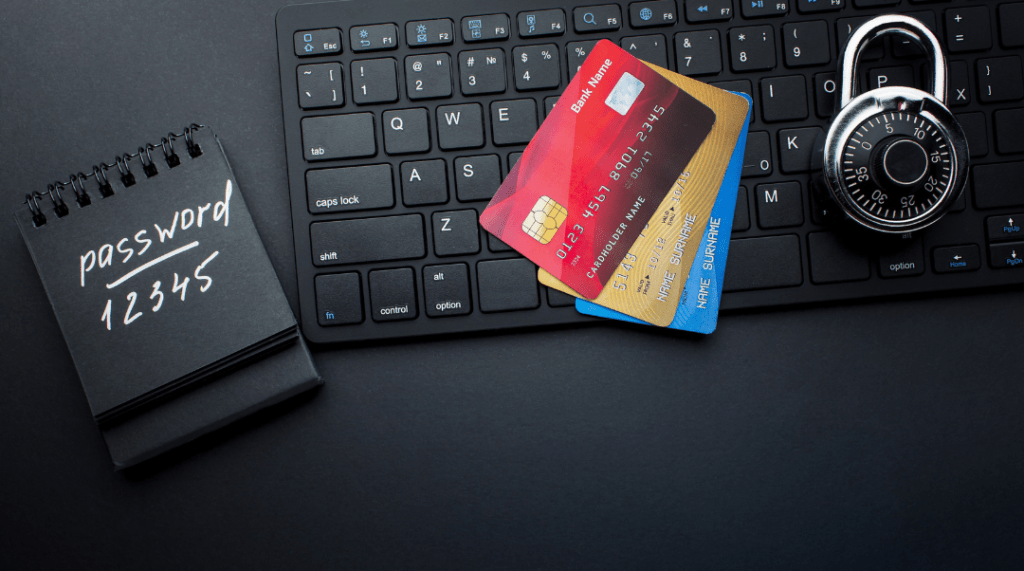Introduction
Remember Cybersecurity is crucial for everyone, but especially for older adults who may not be as tech-savvy.
Imagine this: your grandmother receives a phone call from someone claiming to be from her bank, asking for her account details to fix an urgent issue. She trusts them and provides the information, only to find out later that her account has been drained. This is a common scenario that many seniors face due to their lack of familiarity with digital threats. In this blog, we will explore how seniors can protect themselves online through simple, effective tips.
Table of Contents
1. Understanding Common Cyber Threats for Seniors
Phishing Scams

Phishing scams involve fake emails or messages that appear to be from trusted sources, like banks or government agencies, asking for personal information. Seniors are often targeted because scammers believe they are less familiar with digital communication.
- Example: You receive an email that looks like it’s from your bank, asking you to verify your account details. Always double-check by contacting the bank directly using a trusted number.
Tech Support Scams
These scams involve fake tech support calls or messages claiming there’s a problem with your computer that needs immediate attention. The scammer asks for remote access to your computer or payment for unnecessary services.
- Example: Someone calls claiming to be from Microsoft and says your computer has a virus. Hang up and contact the company directly through their official website.
Social Media Scams
Scammers use social media to send friend requests from fake profiles or messages asking for donations to fake charities.
- Example: You receive a friend request from someone you don’t know, followed by a message asking for money for a sick relative. Be cautious and verify the profile before accepting requests or sending money.
Financial Fraud
Cybercriminals use various methods to steal financial information, such as hacking online banking accounts or using stolen credit card details for unauthorized purchases.
- Example: You notice unfamiliar transactions on your bank statement. Report them to your bank immediately and change your passwords.
2. Practicing Safe Online Habits
Strong Passwords

Using strong, unique passwords for your online accounts is essential. A strong password includes a mix of upper and lowercase letters, numbers, and special characters.
- Tip: Instead of using “password123,” try something like “Gr@ndm@12345!”
Email Safety
Be cautious when opening emails, especially those from unknown senders. Avoid clicking on links or downloading attachments from suspicious emails.
- Example: If an email claims you’ve won a prize but asks for personal information, it’s likely a scam. Verify the sender before responding.
Social Media Use
Adjust your privacy settings to control who can see your information and posts. Avoid sharing personal details like your full address or phone number publicly.
- Tip: On Facebook, you can go to Settings > Privacy and change your settings so only friends can see your posts.
Safe Browsing
Always look for the “https” in the web address to ensure the site is secure. Avoid clicking on pop-ups or ads that seem too good to be true.
- Example: When shopping online, make sure the website address starts with “https://” to ensure your payment information is secure.
3. Using Protective Cybersecurity Tools and Software
Antivirus Software
Installing antivirus software on your computer helps protect against viruses and malware. Many programs also offer real-time protection and automatic updates.
- Recommendation: Norton, McAfee, and Avast are popular choices that are user-friendly and effective.
Firewalls
A firewall is a security system that monitors and controls incoming and outgoing network traffic. Make sure your firewall is enabled to add an extra layer of protection.
- Tip: On Windows, you can enable the firewall by going to Control Panel > System and Security > Windows Firewall.
Browser Extensions
Browser extensions can enhance your online security by blocking ads and tracking cookies. They can also alert you to malicious websites.
- Examples: uBlock Origin for ad blocking, and HTTPS Everywhere for ensuring secure connections.
Password Managers
Password managers help you create and store strong, unique passwords for all your accounts. They can also autofill login details, making it easier to manage multiple accounts securely.
- Example: LastPass and 1Password are popular password managers that offer secure storage and easy access to your passwords.
4. Seeking Help and Reporting Issues
Trusted Sources for Help

If you encounter any issues or have questions about online security, reach out to trusted family members, friends, or local tech support services. There are also many reputable online resources available.
- Tip: Websites like AARP and the FTC offer valuable information and advice on cybersecurity for seniors.
Reporting Cybercrime
If you fall victim to a scam or cybercrime, report it immediately. Contact local law enforcement and organizations like the Federal Trade Commission (FTC).
- Example: If you receive a suspicious email, forward it to the FTC at spam@uce.gov.
Educational Programs
Many communities offer workshops and classes on digital literacy and cybersecurity. These programs can provide valuable information and hands-on training.
- Tip: Check with your local library or senior center for upcoming classes.
5. Encouraging Family Involvement
Open Communication

Discussing cybersecurity with family members can help everyone stay informed and vigilant. Share tips and experiences to help each other recognize and avoid threats.
- Example: Regularly update each other on new scams or security practices you’ve learned about.
Setting Up Devices Together
When setting up new devices, involve a trusted family member who can help ensure that security settings are configured correctly.
- Tip: Schedule regular check-ins to review and update security settings as needed.
Creating a Support Network
Build a network of trusted contacts who can offer advice and support if you encounter cybersecurity issues. This network can include family, friends, and tech-savvy neighbors.
- Emergency Plan: Have a plan in place for quickly addressing any cyber issues, such as who to contact and what steps to take.
Conclusion
In today’s digital world, staying safe online is more important than ever, especially for seniors. By understanding common threats, practicing safe online habits, using protective tools, and seeking help when needed, older adults can enjoy the benefits of the internet while protecting their privacy and data. Remember to stay vigilant, informed, and proactive about your online safety.
Note: I have also Covered Some of the Free Resources for you. I hope it will help you to Upskill Yourself.
FAQ Section
- What is phishing and how can I avoid it?
- Phishing is a scam where attackers send fake emails or messages to steal personal information. Avoid clicking on suspicious links and verify the sender before responding.
- How can I create a strong password?
- Use a mix of upper and lowercase letters, numbers, and special characters. Avoid using easily guessable information like birthdays.
- What should I do if I receive a suspicious call claiming to be tech support?
- Hang up and contact the company directly using a trusted source, like their official website or customer service number.
- How can I adjust privacy settings on social media?
- Each platform has a settings menu where you can control who sees your information. Look for privacy or security options.
- What are some recommended antivirus programs for seniors?
- Popular options include Norton, McAfee, and Avast. Choose one that is user-friendly and offers strong protection.
- How can I tell if a website is secure?
- Look for “https://” at the beginning of the web address and a padlock icon next to it.
- What is a password manager and how can it help me?
- A password manager stores and encrypts your passwords, helping you create strong passwords and remember them easily.
- Who can I ask for help with cybersecurity issues?
- Reach out to trusted family members, friends, or professional tech support services. There are also reputable online resources and forums.
- How do I report a scam or cybercrime?
- Contact local law enforcement, report to organizations like the FTC, and inform your bank if financial information is involved.
- Are there any online courses for learning about cybersecurity?
- Yes, there are many free and paid courses available on platforms like Coursera, Udemy, and AARP specifically tailored for seniors.
By following these tips and involving your family, you can enjoy the benefits of the internet while staying safe and secure. Stay vigilant and proactive about your online safety!
